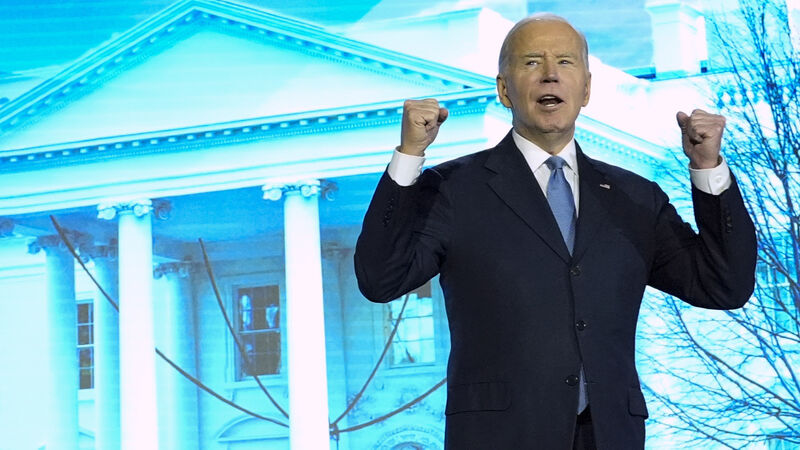Irish Examiner view: It will take time to fully assess Joe Biden’s legacy as US president

An ebullient Joe Biden at the US Conference of Mayors in Washington yesterday, Friday — one of his last public engagements as US president. Picture: Alex Brandon/AP
There will be no shortage of commentary about Donald Trump between now and November 7, 2028 — the next scheduled date for a US presidential election.
But ahead of Monday’s inauguration it is worth reflecting on the legacy of Joe Biden, friend of Ireland, the 46th incumbent, and a leader who may need the mollifying impact of the passage of time to reinvigorate his reputation as a decent man who made the grievous, and complacent, mistake of ignoring his own cognitive decline.













